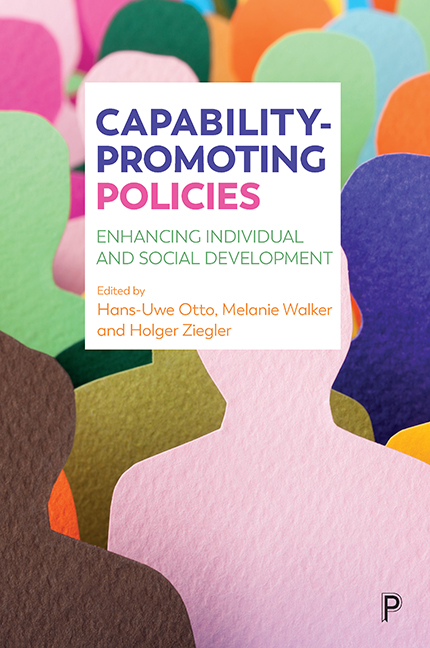Four - Public policy: from welfare to empowerment of women in India
Published online by Cambridge University Press: 12 April 2022
Summary
Introduction
Public policy addressing gender issues in India started with a constitutional declaration in 1950: Article 15(1) of the Fundamental Rights of Indian Constitution prohibits discrimination on grounds of religion, race, caste, sex or place of birth. Furthermore, Article 15(3) empowers the state to take affirmative actions in favour of women. These measures, however, did not ensure gender equality, as strong socio-cultural factors and patriarchy resulted in a greater gender gap in access to opportunities. This gap could be observed in all capabilityenhancing inputs across the country. According to the 2011 census, the gap in the literacy rate of male and female was 16.7%. This gap was greater in rural areas (19.2%) than urban areas (9.65%). Affirmative action was identified as an important tool to include those who were hitherto excluded and make men and women equal partners in the development process. Various policy measures and programmes were introduced in different five-year plans. The promotion of girl child education has resulted in a considerable increase in gender parity in school enrolment, and more and more women have entered the paid labour market. However, this has generated a host of other issues, given the patriarchal norms in Indian society. For example, there has been a considerable increase in the number of cases of violence against women, divorce and so on. The pending ascent of the Women Reservation Bill for the past two decades is a testimony to the influence of patriarchy. The Bill has not achieved the requisite majority despite being presented several times. Currently, India is in the paradoxical situation whereby reasonable gender parity in capability-promoting measures and enhanced gender-based violence coexist.
The objective of this chapter is to review the policy initiatives by the Government of India during the planning era and analyse empirically the impact of the policy interventions on the empowerment of women in Karnataka at the micro level by using the capability approach. The study tests the hypothesis that the policy of involving non-governmental organisations (NGOs) in the empowerment of rural women has a positive impact on the autonomy of women measured in terms of capabilities.
The analysis is based on primary data collected through sample surveys from two districts in Karnataka, India. Sample districts represent developed and underdeveloped districts based on the Human Development Report of Karnataka.
- Type
- Chapter
- Information
- Capability-Promoting PoliciesEnhancing Individual and Social Development, pp. 63 - 84Publisher: Bristol University PressPrint publication year: 2017



